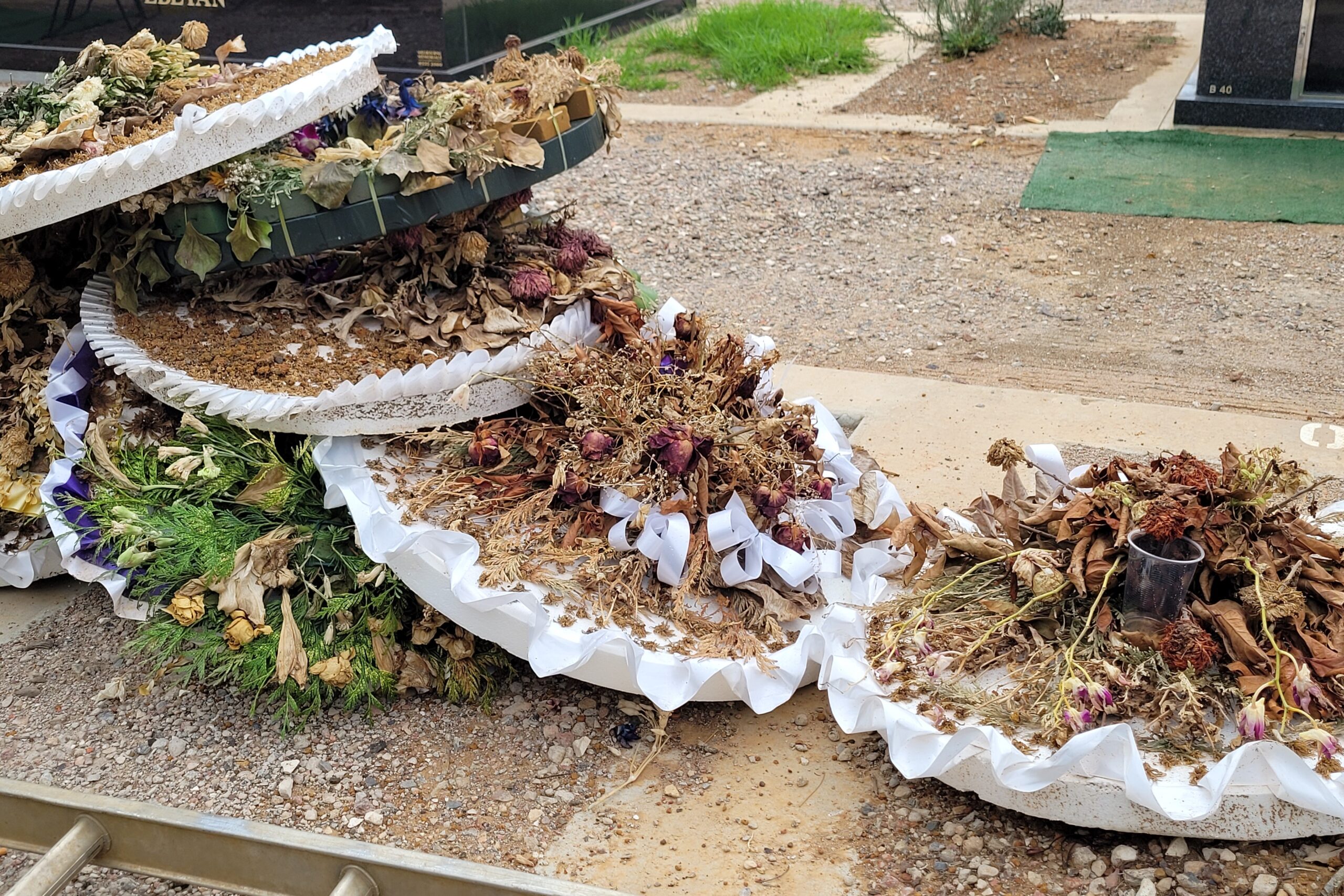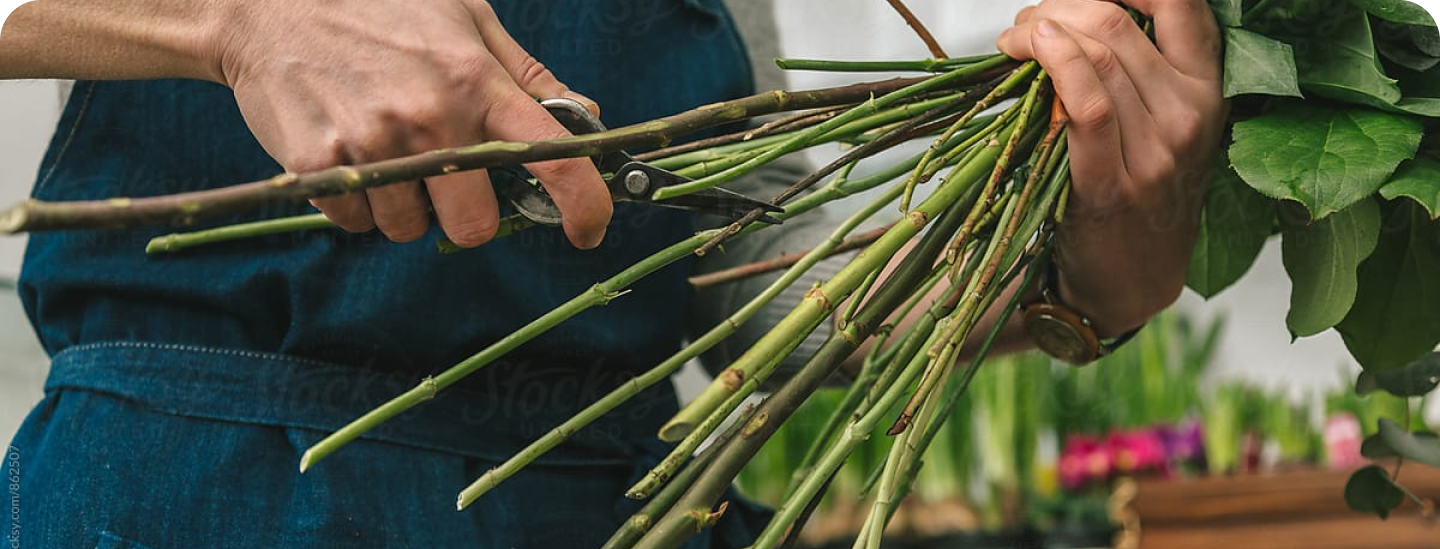Why we need the SFN
Florists are champions of nature. So why is modern floral design so unsustainable? The problem is complicated, with issues stemming from dated education programs, wasteful design standards and a lack of clear guidance on how to fix things.
This is why we need the Sustainable Floristry Network.

Modern floristry is disconnected from current ideas about sustainability.
Because it is time to reassess our relationship with flowers
Most florists are attracted to the industry because they love nature and beauty. Florists should be environmentalists by default – and by example.
Yet the global industry is still underpinned by teaching programs that rely heavily on the use of floral foam as a design medium. This single-use plastic has no place in sustainable floral design.
Floristry has other bad habits. There is the use of excess packaging, plastic sundries and decorations. To meet consumer expectations, many florists buy exotic blooms flown halfway around the globe – unaware that conditions on the flower farms they come from may breach workers’ rights.
These practices have all combined to create an Instagram-perfect but unsustainable standard.
None of this is the fault of florists. The industry has a long history of product greenwashing and misinformation, a confusing array of certifications, and (until now) no truly independent organisation to provide expert advice.
As gatekeepers of the flower industry and champions of nature, florists have the power to steer the industry in a more sustainable direction.
Our job is to give them the knowledge to make that happen.
Because we need an independent organisation free from product manufacturer influence
Traditionally, product manufacturers have maintained close associations with floristry organisations, courses and publications. Advertising and sponsorship in industry media alongside articles about sustainability make it difficult for florists to sort evidence-based from greenwashed.
As the SFN was created to help florists make floristry more sustainable, it is critical that we exist free from commercial bias or influence.
To help florists and consumers make better choices through education, behavior change and advocacy, we look beyond the industry for advice and refer to leading global organisations and academic and industry experts for guidance.
Because floristry is unregulated
Floristry is an unregulated industry. Anybody can start a business and call themselves a florist – with or without the skills traditionally associated with the trade. In fact, a 2019 SFN survey of over 1200 florists showed that within the industry, 20% of florists are self-taught.
As for floristry education, around 36% of florists had participated in an accredited training system and 14% in private courses. The remainder learn on the job, with 6% completing apprenticeships.
Meanwhile 66% of florists are self-employed.
We know that florists are a talented lot. But we think they deserve more.
Professional development – which is standard in most other trades and professions – will introduce florists to industry issues and new skills, help them make sustainable aesthetic and business decisions, and allow them to better connect with customers.
We’ve created an education system for all members of the industry that fills in the knowledge that is missing from other programs. This system underpins a new approach to floral design, with a set of four design and business principles creating a new standard specifically in sustainability.
Because we need a new standard for design and waste management
In the same way that we must urgently shift our dependence on fossil fuels to combat climate change, it is critical that we abandon our dependence on materials that pollute the natural environment.
Floristry’s 50 year love-affair with an entirely unsustainable product – floral foam – must end as soon as possible.
Our goal is a zero waste industry. After all, we have a head start – our main product is 100% compostable.
Cutting the ties to plastic requires comprehensive change, from teaching through to consumer expectations.
The SFN will support this process through education, for both florists and consumers.
Because we must counteract greenwashing and misinformation
Sustainability is science-based and the subject of intensive study across the world. However, opinion and misinformation can muddle messages and leave individuals confused about the truth. Product marketing and advertising can lead us astray. Loosely-defined terms like “compostable” and “plant-based” further muddy the waters.
The SFN seeks to give florists the facts about sustainability and provide a voice of truth in an industry with a long history of greenwashing.
